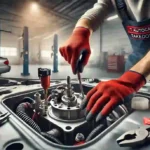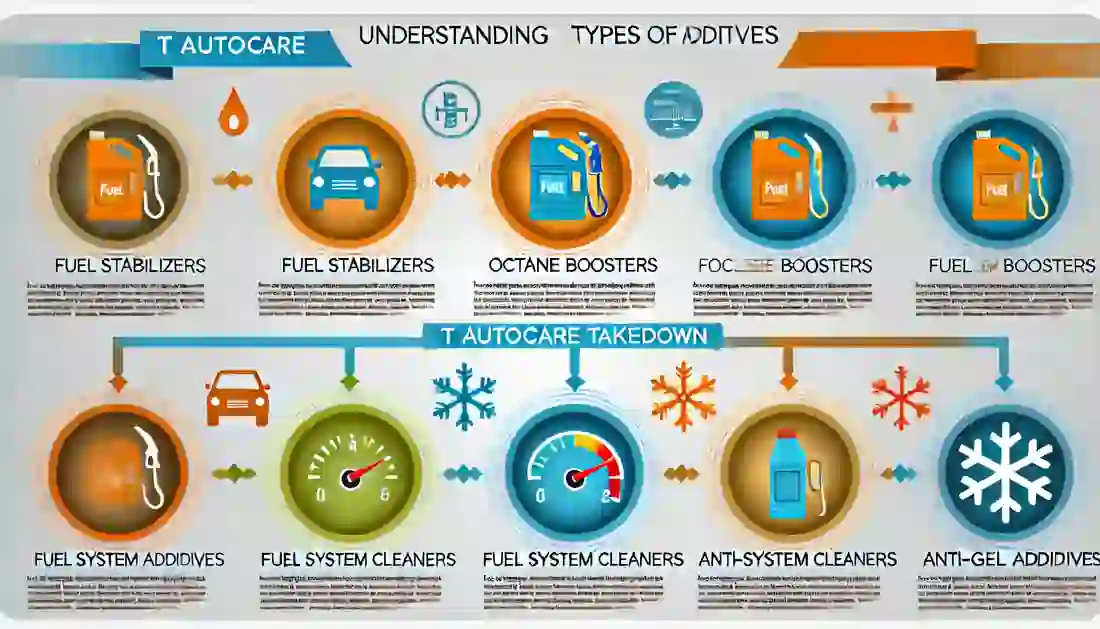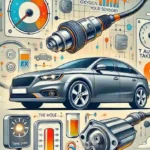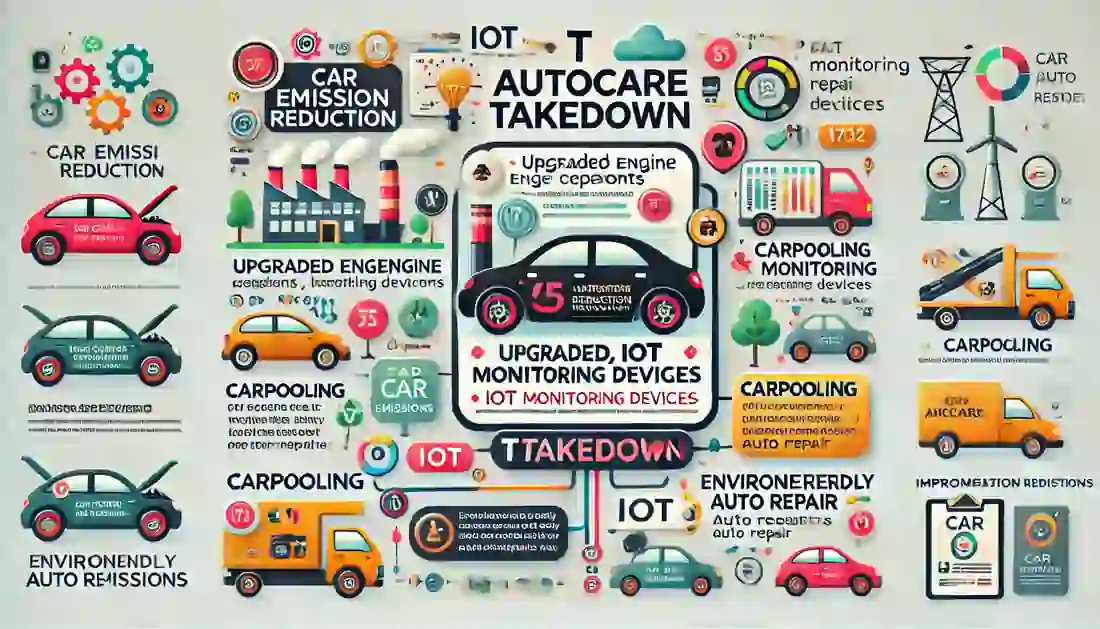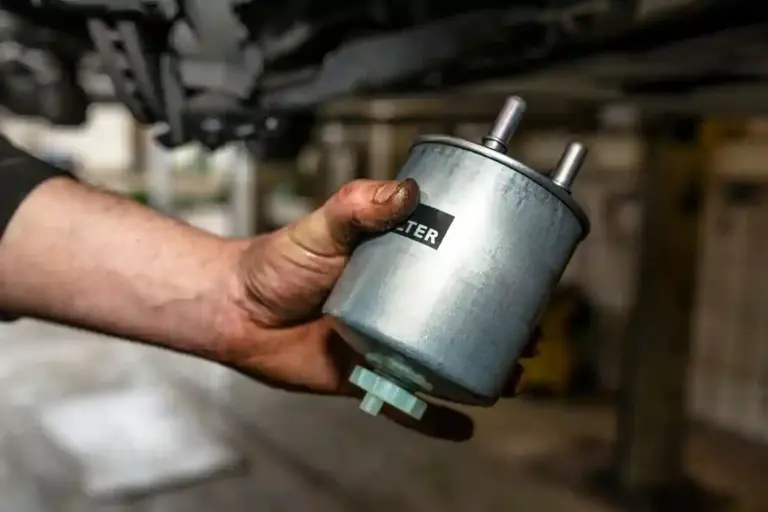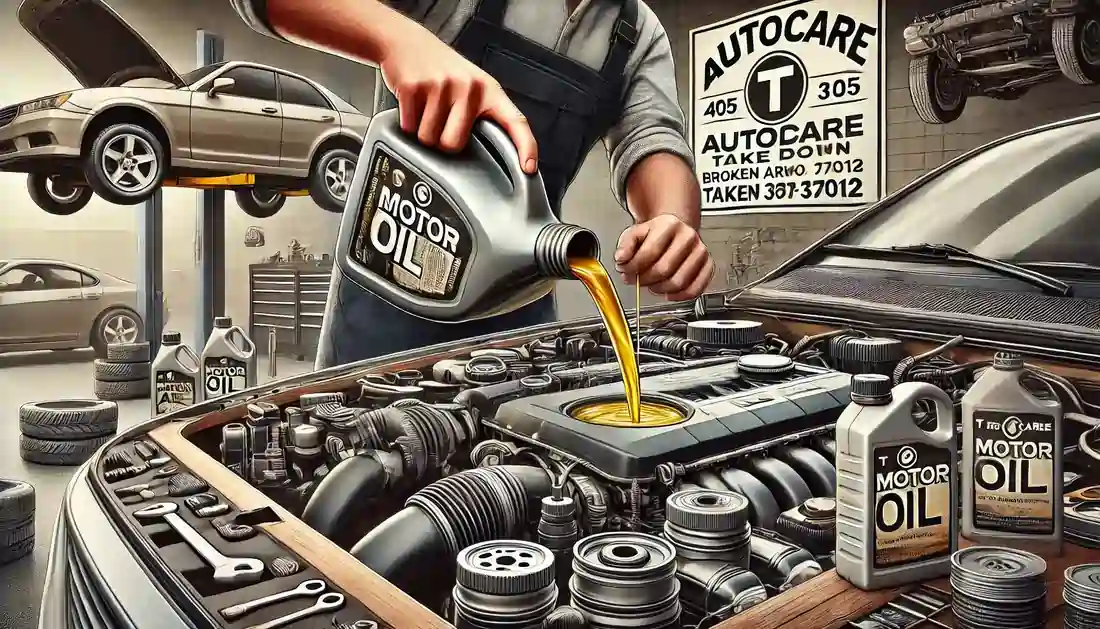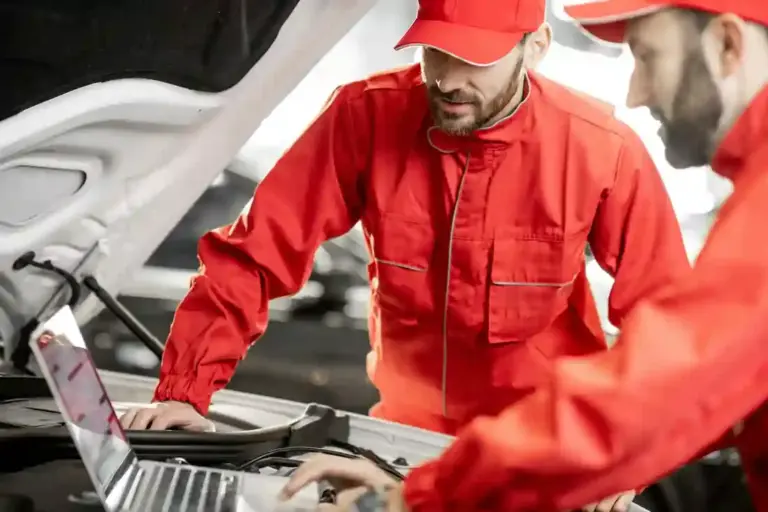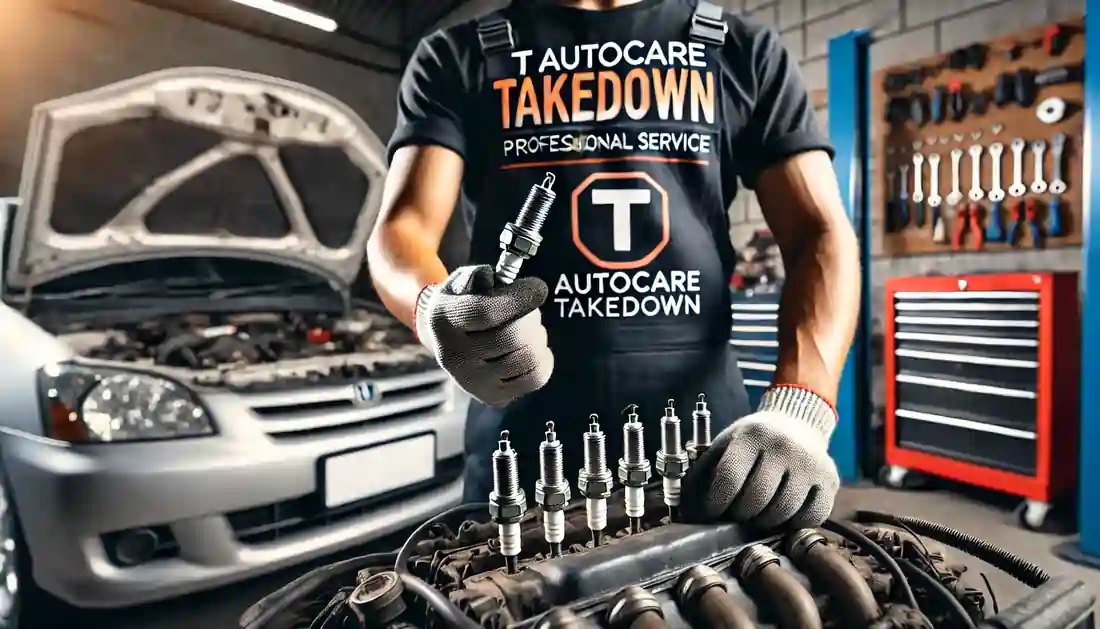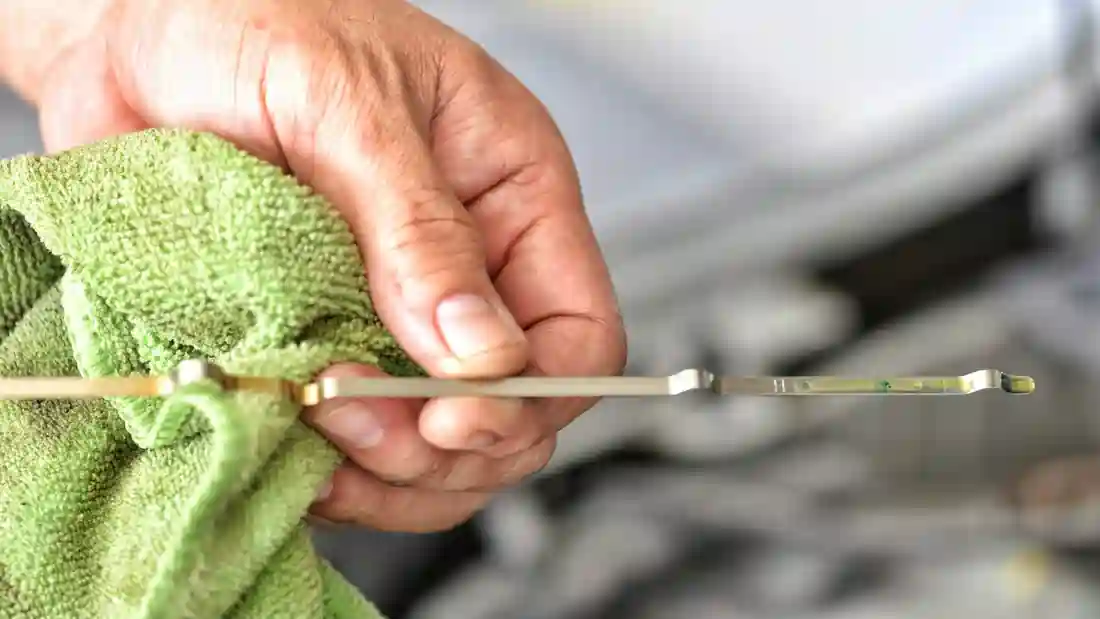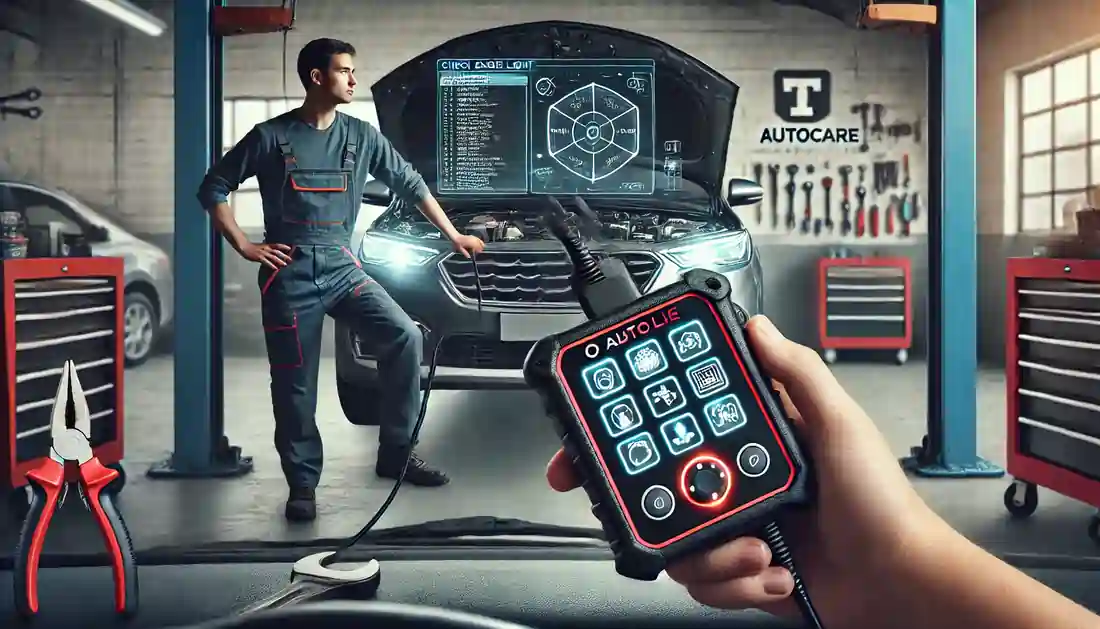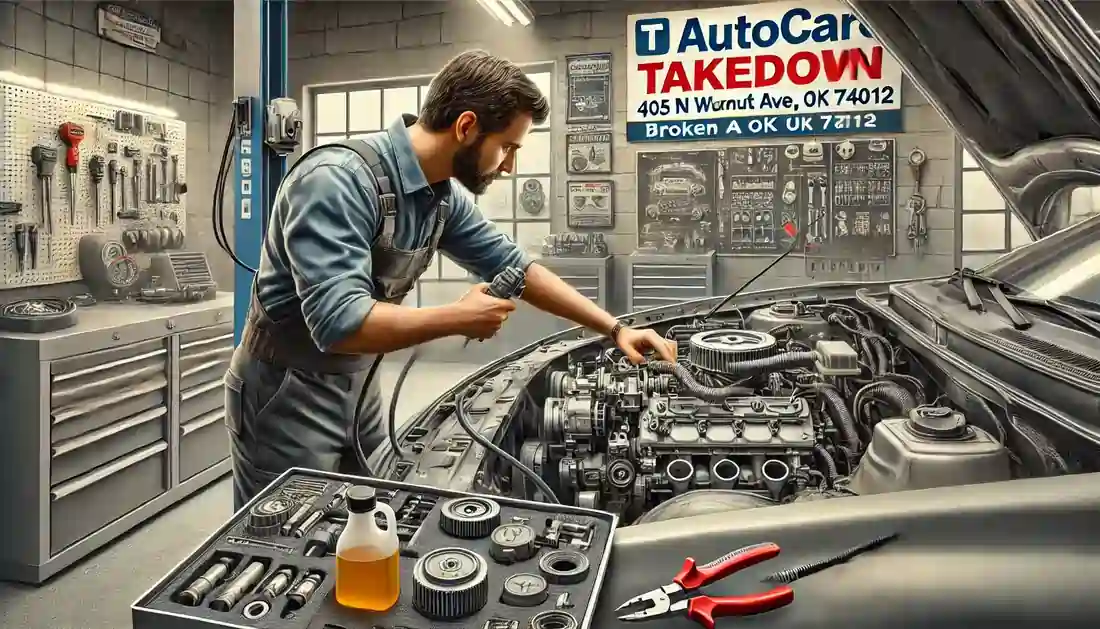Improving your vehicle’s fuel efficiency is a smart choice for both your wallet and the planet. With gas prices fluctuating, learning a few easy habits can save you money and reduce harmful emissions.
At T Autocare Takedown, we believe in keeping your car running smoothly while helping you get the most out of every tank of gas. Follow these simple tips to boost your fuel efficiency and keep your car in great shape for the road ahead.
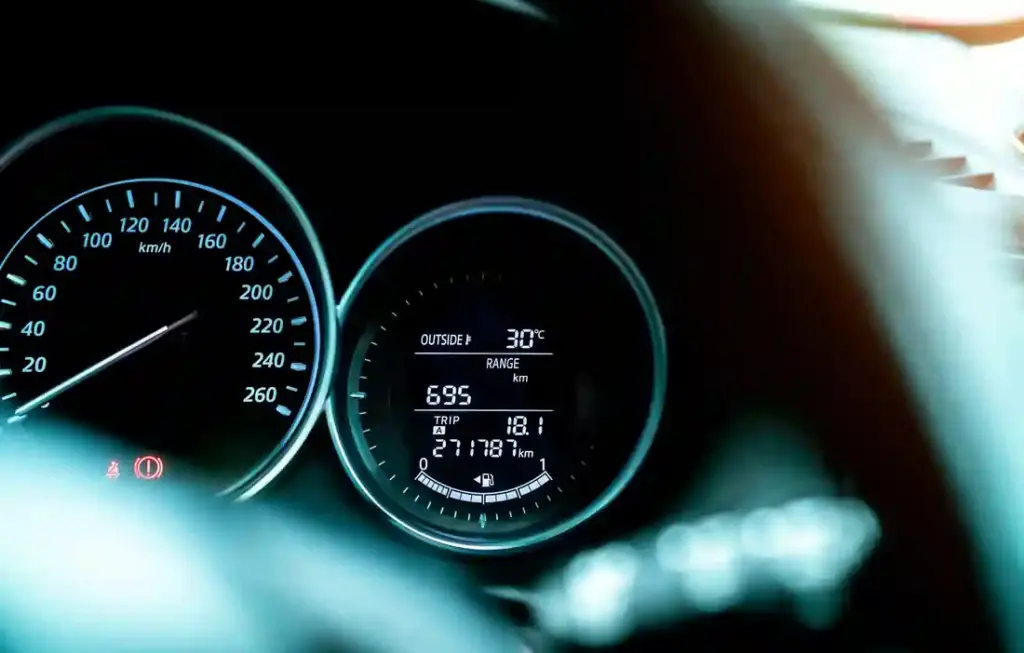
Why Fuel Efficiency Matters
Fuel efficiency is about more than saving money—it’s also good for the environment and your car’s health. When you use less fuel, you help lower greenhouse gas emissions, which contribute to air pollution and climate change. Saving fuel can also mean less wear and tear on your car’s engine, helping it perform better and last longer. So, by driving efficiently, you’re making choices that are better for your wallet, the planet, and your vehicle!
To learn more about ways to maintain your vehicle for better fuel efficiency, check out our Car Maintenance Budget guide. This resource offers tips on how regular upkeep can make a difference in fuel savings.
Explore the sections below to start maximizing your car’s fuel economy:
- Lighten Your Load for Better Fuel Efficiency
- Avoid Unnecessary Idling and Plan Efficient Routes
- Use Air Conditioning Wisely
- Check and Use the Right Motor Oil
- Use Technology to Your Advantage
- Drive at Optimal Speeds
- Shift Gears Efficiently to Save Fuel
- Maximize Your Savings
Simple Tips to Boost Your Car’s Fuel Efficiency
Want to get more miles out of each tank of gas? Here are some simple tips that can help you save fuel, keep your car running smoothly, and lower your environmental impact. By following these practical ideas, you’ll be able to drive further while spending less on fuel. Let’s dive into some of the best ways to improve your car’s fuel efficiency!
The Importance of Regular Maintenance for Fuel Efficiency
Staying on top of regular maintenance is one of the best ways to improve fuel efficiency and make your car last longer.

Routine services like oil changes, air filter replacements, and spark plug checks keep your engine running smoothly. When your engine is in good condition, it doesn’t have to work as hard, which helps you save fuel.
Key Maintenance Services for Better Fuel Efficiency
- Oil Changes
Fresh oil reduces friction in your engine, allowing it to run more efficiently. Regular oil changes also prevent build-up that can strain your engine.- Check out our Oil Change Services for more information on how fresh oil can benefit your vehicle.
- Air Filter Replacements
A clean air filter allows for proper airflow, which is essential for efficient fuel combustion. Replacing a dirty air filter can improve your gas mileage and engine performance.- Read about the importance of air filter care in our guide, When to Replace Your Car’s Air Filter.
- Spark Plug Checks
Spark plugs ignite the fuel in your engine, so they need to be in good shape. Worn-out spark plugs can reduce fuel efficiency and cause engine misfires. If you’re noticing issues like rough idling or difficulty starting, it might be one of the signs you need a tune-up.- For tips on spark plug maintenance, visit our article on Regular Spark Plug Replacement.
Regular maintenance not only saves fuel but also protects your engine, helping it last longer. Make it a habit to schedule these essential services, and your car will reward you with better performance and lower fuel costs!
Drive Smoothly and Efficiently
Improving your fuel efficiency can be as simple as adjusting your driving style.

Aggressive driving—like rapid acceleration, hard braking, and frequent lane changes—forces your engine to work harder, burning through fuel faster. By switching to a smoother approach, you can save fuel and reduce wear on your vehicle.
Try to accelerate gradually, allowing your engine to reach higher speeds without strain. When you anticipate stops and brake gently, you help protect your brakes and improve your car’s efficiency.
For tips on keeping your brakes in top shape, visit our page on Brake Inspection Services.
Use Cruise Control on Highways
Using cruise control on highways can be a game-changer for fuel efficiency. By keeping a constant speed, cruise control prevents the small fluctuations in acceleration that waste fuel. This feature is especially useful on flat stretches of road, where it allows your car to maintain speed without making your engine work harder than necessary.
For more ways to keep your car running efficiently, check out our Car Maintenance Tips
Plan Your Trips to Avoid Traffic
Planning your trips ahead of time can help you avoid stop-and-go traffic, where frequent starting and stopping wastes fuel. By choosing routes with less congestion, you’ll be able to drive more smoothly, saving both fuel and time. Following these tips can lead to a noticeable improvement in your car’s fuel economy, making for a more relaxed and cost-effective drive.
For more ways to keep your car efficient, check out our Preventative Maintenance Guide.
Read More: Tips for Safe Driving in Rainy Conditions
Lighten Your Load for Better Fuel Efficiency
Carrying extra weight in your vehicle puts more strain on the engine, which increases fuel consumption. The heavier your car, the more fuel it needs to move, so reducing unnecessary weight can improve your gas mileage. Start by removing non-essential items, especially heavy or bulky ones, from your trunk and back seat. Seasonal gear, sports equipment, and other items often stay in the car longer than needed, adding weight without daily benefits.
Roof racks and carriers are convenient for trips, but when left on your car, they create wind resistance, or “drag.” This extra drag makes your engine work harder, especially at higher speeds, leading to increased fuel consumption. If you don’t need these accessories for daily driving, removing them can improve your car’s aerodynamics and fuel efficiency. Small changes like reducing weight and drag can make a big difference in saving fuel and lowering your costs at the pump.
Avoid Unnecessary Idling and Plan Efficient Routes
Idling might seem harmless, but it actually uses more fuel than you might expect. When your engine is running but your car isn’t moving, it’s still burning fuel, leading to unnecessary fuel loss and extra emissions.

A good rule of thumb is to turn off your engine if you’re stopped for more than a minute—whether waiting in a parking lot, at a train crossing, or while picking someone up. Restarting your engine uses less fuel than idling for extended periods, so making this small change can add up to significant savings over time.
For more on keeping your car in good condition, check out our Essential Tools Every Car Owner Should Have.
Along with reducing idling, planning your routes in advance can help you avoid fuel-wasting situations like stop-and-go traffic, detours, and congested areas. Using GPS or a traffic-monitoring app can guide you to the shortest, most efficient route. If possible, try to plan your trips during off-peak hours to avoid rush-hour traffic. This not only saves fuel but also reduces wear on your engine and brakes.
- For more on getting the most out of your navigation, check out our guide on Updating Your Car’s GPS System.
By making these small adjustments, you can cut down on fuel consumption, save time, and enjoy a smoother, less stressful drive.
Use Air Conditioning Wisely
While air conditioning is a welcome relief on hot days, it can lower your fuel efficiency, especially during city driving.

Running the AC places extra load on the engine, which requires more fuel to keep up with the increased demand. To reduce this effect, consider using air conditioning sparingly and only when absolutely necessary. On milder days or at lower speeds, open the windows or use the vehicle’s ventilation system to keep air circulating and stay comfortable without engaging the AC.
At higher speeds, however, open windows can create aerodynamic drag, which can also reduce fuel efficiency. In these situations, a moderate use of air conditioning is often more efficient than driving with the windows down. By balancing your use of air conditioning with smart ventilation practices, you can stay cool while saving fuel, ensuring your comfort and efficiency on the road.
More about AC Repair: Expert Auto AC Repair in Broken Arrow
Check and Use the Right Motor Oil
Choosing the right motor oil is a simple but effective way to boost fuel efficiency and protect your engine. Each vehicle has a specific motor oil grade recommended by the manufacturer, which is designed to provide the best performance for that engine. Using the recommended oil ensures that your engine runs smoothly by reducing friction between moving parts. When friction is minimized, the engine doesn’t have to work as hard, which helps lower fuel consumption.
For more details on motor oil benefits, explore our guide on the Benefits of High-Quality Motor Oil.
Using the wrong oil grade can increase friction and cause higher engine temperatures, which may decrease fuel efficiency and lead to engine wear over time. To maximize fuel savings, look for motor oils labeled as “energy-conserving” or “fuel-efficient,” as these contain additives that improve fuel economy. Regularly checking your oil level and sticking to the recommended oil type will help keep your car running smoothly, saving fuel and extending your engine’s lifespan.
For more on the importance of regular oil changes, check out our guide on The Importance of Regular Oil Changes.
Use Technology to Your Advantage
Many modern vehicles come equipped with built-in features designed to improve fuel efficiency and reduce emissions.

One helpful feature is the start-stop system, which automatically shuts off the engine when the car is stationary—such as at stoplights or in traffic—and restarts it when you release the brake or press the accelerator. This function can lead to significant fuel savings, especially in urban areas with frequent stops.
Other technologies, like adaptive cruise control, help maintain a steady speed on highways, cutting down on fuel wasted by constant speed adjustments. Additionally, many cars now offer eco-driving modes, which adjust the engine, transmission, and even air conditioning to prioritize fuel efficiency. Vehicles also often have tire pressure monitoring systems (TPMS) to alert you when tire pressure is low, helping you avoid the fuel loss caused by underinflated tires.
- For more on TPMS, visit our guide on Understanding Tire Pressure Monitoring Systems.
By learning to use these features effectively, you can maximize your vehicle’s technology to save fuel and drive smarter.
Drive at Optimal Speeds
Driving at high speeds might get you to your destination faster, but it can significantly increase fuel consumption. When you push your car beyond its most fuel-efficient speed—usually around 50-60 mph for most vehicles—the engine has to work harder, using more fuel to maintain speed. Higher speeds also lead to greater aerodynamic drag, meaning your car faces more air resistance, which forces it to burn extra fuel.
By sticking to speed limits and driving at a steady, moderate pace, you can reduce fuel usage and save money over time. Keeping a consistent speed, rather than frequently accelerating and decelerating, further improves fuel efficiency. Using cruise control on highways can help manage your speed and avoid sudden accelerations that waste fuel.
- For more insights on fuel-saving techniques, check out our Tips for Improving Fuel Efficiency.
Embracing a balanced speed can make a noticeable difference in fuel economy, while also reducing wear on your vehicle.
Shift Gears Efficiently to Save Fuel
If you drive a vehicle with a manual transmission, knowing when to shift gears can make a big difference in fuel efficiency.

Shifting to higher gears as soon as possible—without overloading the engine—helps your car run smoothly while using less fuel. Driving in lower gears for too long keeps the engine revving at a higher RPM, which uses more fuel and adds wear to engine components.
To maximize fuel savings, try to keep the engine’s RPMs in the optimal range, typically between 1,500 and 2,500 RPM for most vehicles. Listen to your engine and avoid “revving” it unnecessarily, as this consumes extra fuel. If your car has a gear shift indicator, use it as a guide to know when to upshift or downshift. Proper gear management not only saves fuel but also helps prolong the life of your engine and transmission.
For additional tips on extending engine life, check out our guide on Engine Maintenance Tips.
Maximize Your Savings
Enhancing your vehicle’s fuel efficiency offers benefits that extend far beyond just saving on gas. By adopting fuel-saving habits, you reduce engine strain, cut down on wear and tear, and ultimately help extend your car’s lifespan. This means fewer unexpected repairs, more consistent performance, and lower long-term maintenance costs. A well-maintained vehicle not only operates more efficiently but also ensures a safer and smoother driving experience for you and your passengers.
For expert maintenance and personalized fuel-saving advice, visit our auto repair Broken Arrow shop. Our experienced team is dedicated to helping you get the most out of every tank of gas while keeping your vehicle in peak condition. Regular check-ups at our Broken Arrow, OK shop can help you spot potential issues early, improve fuel efficiency, and give you peace of mind on the road.
By incorporating these tips into your driving habits and maintaining your vehicle properly, you can enjoy better fuel efficiency and a smoother ride.
Useful Links on Improving Fuel Efficiency
Looking for more fuel-saving tips? Here are some additional resources to help you maximize your vehicle’s efficiency:
- 13 Ways to Improve Fuel Economy (Evans Halshaw)
- 30 Ways to Improve Fuel Efficiency (Drive Safely)
- Fuel Saving Tips (Stratstone)
- How to Save Gas: 10 Fuel Efficiency Tips (CarVertical)
- How to Improve Your Car’s Fuel Efficiency (Autobizcenter)

